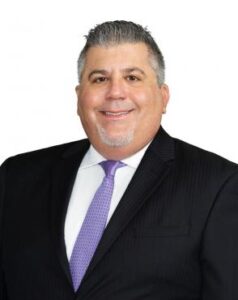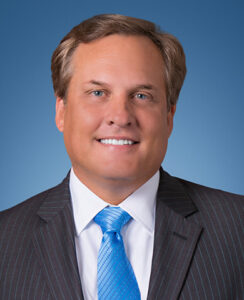Despite the Florida Legislature taking major steps to rein in the cost of roof claims and litigation, at least two insurers have come out with broad roof endorsements that seek to bar claims for wear and tear, poor workmanship and design issues – except for damage caused by named storms.
“This form is required to combat fraudulent roof claims from continuing to impact loss results,” reads a letter from Slide Insurance Co.’s Jeremy Backzkiewicz to the Florida Office of Insurance Regulation, explaining the company’s May 25 filing.
After some minor revisions to the endorsement, the OIR approved Slide’s filing for its homeowners program, which followed the March approval of a roof limitation filed by Florida Peninsula Insurance. They both are very similar to an endorsement filed by American Integrity Insurance in 2019 and updated recently. Slide’s endorsement takes effect Aug. 1 for new policies and renewals.
The endorsements appear to expand the definition of “roof surfacing” to include not only shingles, panels, and tiles, but also cladding, underlayment and decking, along with roof vents, flashing, drip edges and skylights.
And “unless loss is caused by a ‘Hurricane occurrence’ or “Named Storm,'” the Slide endorsement reads, “we do not cover loss to ‘Roof surfacing’ caused directly or indirectly by any of the following:
- Wear and tear, marring, spatter marks, or deterioration;
- Displacement or removal of roof surface granules that does not result in fracturing, bruising, puncturing, or other damage to the base material or underlying mat;
- Inherent vice or latent defect;
- Faulty, inadequate, or defective maintenance;
- Faulty, inadequate, or defective materials used in repair, construction, renovation, or remodeling;
- Faulty, inadequate, or defective design, specifications, workmanship, repair, construction, renovation, or remodeling; or
- Settling, shrinking, bulging, or expansion, including resultant cracking.”
Wear-and-tear and other types of exclusions are not new. A 2021 HO-3 policy written by Florida Peninsula, for example, already lists some of the same excluded conditions. But the recent endorsements may take the wording to a new level, listing more excluded situations and giving the insurers wide latitude to deny claims.
The endorsements could have a big impact on claims frequency, but they have already raised questions from attorneys and adjusters, including why the filings came this spring, after legislative changes that have cut the knees out of assignment-of-benefits, roof replacement requirements and one-way attorney fees.
The endorsements also raise questions that may have to be answered in court, and will likely lead to at least some litigation, said Ron Assise, senior vice president of The Horton Group, a national insurance brokerage and agency.
The wording, for example, may be seen as confusing: Wear and tear is not covered unless it is caused by a hurricane, the Slide endorsement reads. But the debate over whether a storm caused damage that looks suspiciously like age deterioration has been at the heart of hundreds of claims disputes in Florida. And who decides what is considered poor workmanship or design?

Slide roof endorsement “There’s a lot of subjectivity in how they’ll interpret this at claims time,” Assise said.
Slide officials declined to comment. A representative for Florida Peninsula said that the recent filing simply puts all exclusions into one endorsement and is not a major shift for the carrier.
“We believe that in doing so, this will help with some of the frivolous roof-related lawsuits we receive,” said Sarah Bascom, president of a communications firm that works with the insurer.
Others in the industry offered differing reactions.
“I think the endorsement adds clarity for both sides when it comes to non-named storm events as to what will and will not be covered,” said Michael Packer, a Fort Lauderdale insurance defense attorney with the Marshall Dennehey law firm. It “should hopefully continue to reduce litigation.”

He suggested that the endorsement may be optional for Slide policyholders, and that the insurer may offer a premium discount in return. But the Slide filing does not address that.
Independent adjuster Ben Mandell, known for speaking out recently about some Florida insurers’ claims practices, argued that the Slide endorsement will essentially nullify most roof claims – except those that result from named storms.
“As an adjuster I know that most roof claims are not caused by hurricanes,” he said. “Most roof claims are caused by things other than hurricanes or named storms.”
Damage from hail storms and other events that are not uncommon in Florida will likely not be covered, Mandell said.
He has advocated for a dollar-limit roof endorsement, perhaps for $20,000 – similar to mold endorsements already in use by some insurers – as a better way to prevent exaggerated claims.
A plaintiffs’ attorney argued that Florida OIR should have challenged the endorsement because it will unfairly undercut legitimate claims.
“The insurance regulator should have asked for examples of how this language combats insurance fraud,” said Chip Merlin, a Tampa lawyer who represents policyholders. “Indeed, a good regulator would go back and ask both insurance companies for these examples about how, without this language, fraudsters were able to get roof claims paid.”

Hail may not show significant impact on shingles until later, after the initial damage loosens granules, exposing the material to deterioration, he said. “Most engineers, even those retained by insurers, will say this gradual loss is significant physical loss. However, insurers will point to the policy language to deny the claim,” Merlin noted.
In the long run, the endorsements may see relatively few challenges in court, thanks to Senate Bill 2A, adopted in December, and House Bill 837, passed in March. Both of those make it more difficult for policyholders to hire plaintiffs’ attorneys, Merlin said.
“Since the Florida Legislature just did away with policyholders being able to recoup the cost of attorneys fees, and the average roof replacement is $25,000 to $30,000, wrongful denials of otherwise valid and payable claims will go unchallenged because people cannot afford to hire attorneys and engineers to fight for coverage,” Merlin said.
Assise suggested that the endorsements will now prompt claimants’ attorneys to try and tie more roof claims to named storms.
Was this article valuable?
Here are more articles you may enjoy.

 Claims Handling Breakdowns From LA Wildfires One Year on
Claims Handling Breakdowns From LA Wildfires One Year on  Gas-Guzzler Revival Risks Dead-End Future for US Automakers
Gas-Guzzler Revival Risks Dead-End Future for US Automakers  AI Got Beat by Traditional Models in Forecasting NYC’s Blizzard
AI Got Beat by Traditional Models in Forecasting NYC’s Blizzard  Building Fortification And The Role of The Insurance Industry
Building Fortification And The Role of The Insurance Industry 